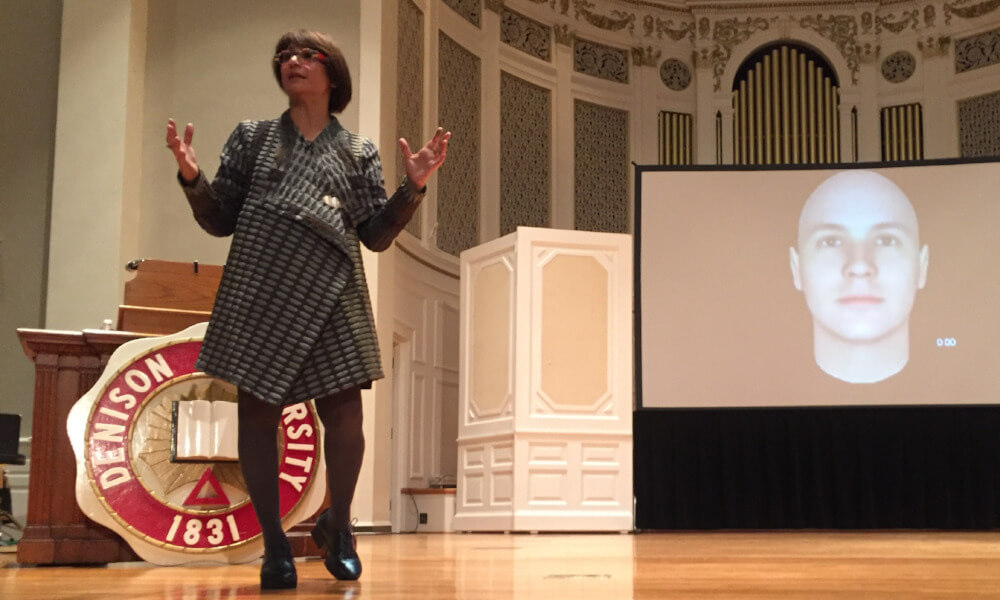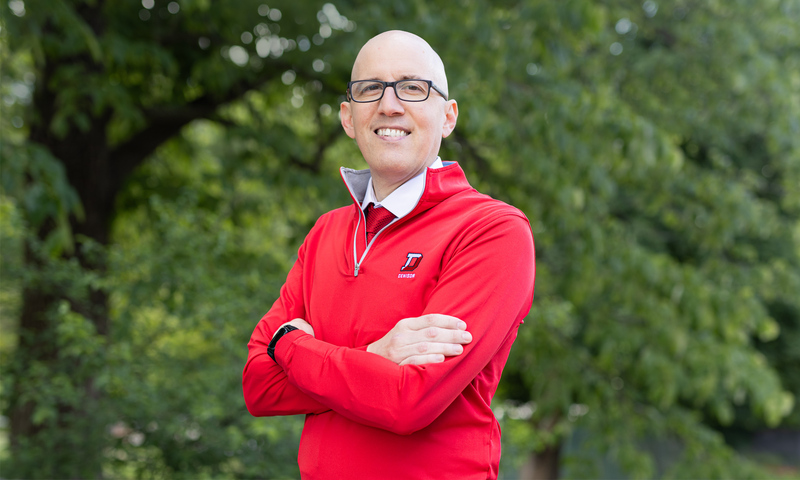Dr. Mahzarin Banaji is an experimental psychologist from Harvard University and a world renowned researcher on implicit social cognition and unconscious bias. She came to Denison this past Thursday, March 30, for a day and evening of conversation and learning about social bias that can be unconscious. She spoke at Swasey Chapel at 8pm Thursday to a large group of interested and engaged Denison community members, including faculty, students, and others.
She is co-creater of Project Implicit, and co-author of the book Blindspot: Hidden Biases of Good People (2013). This book and her research seek to understand the hidden biases in the human mind based on a lifetime of exposure to societal stereotypes and attitudes. Knowledge of these biases may help people adapt their beliefs and behaviors so as to be more fair when making judgments of and interacting with others. Dr. Banaji's research is directly relevant to some of the recent campus conversations promoting inclusive excellence. Her presentation can be informative for ongoing conversations about creating safe and nurturing learning and living environments for all our students, faculty and staff. These conversations are especially important in our current social and political climate.
Dr. Banaji received her Ph.D. from The Ohio State University in 1986 and taught at Yale University for 15 years, where she was the Ruben Post Halleck Professor of Psychology, Director of Undergraduate Studies, and received the Lex Hixon Prize for Teaching Excellence. Since 2002, she has been the Richard Clarke Cabot Professor of Social Ethics in the Department of Psychology at Harvard University; during which time she also served as the first Carol K. Pforzheimer Professor at the Radcliffe Institute for Advanced Study (2002-2008) and the Cowan Chair in Human Dynamics at the Santa Fe Institute (2011-2014).
Her significant research contributions have been recognized by a Presidential Citation from the American Psychological Association (2007) and the Diener Award for Outstanding Contributions to Social Psychology (2009). In 2016, she received both the William James Fellow Award from the Association for Psychological Science for a “lifetime of significant intellectual contributions to the basic science of psychology” and the Donald Campbell Award for Distinguished Research in Social Psychology from the Society for Personality and Social Psychology. Dr. Banaji was also named a Fellow of the American Association for the Advancement of Science, the American Academy of Arts and Sciences, the American Psychological Association, the Association for Psychological Science, and the Society for Experimental Social Psychologists.

